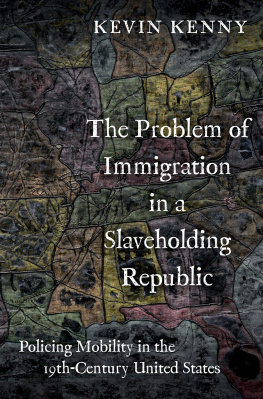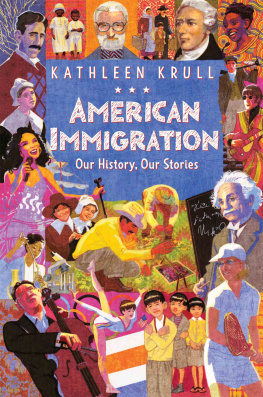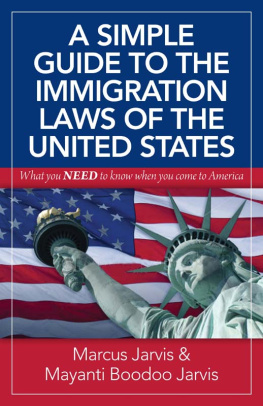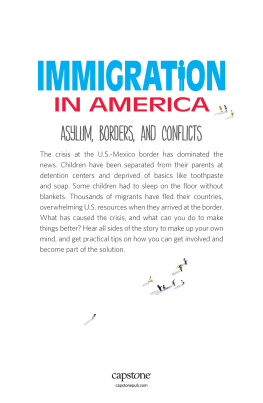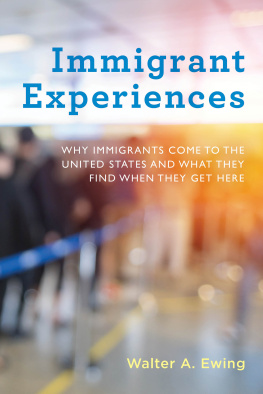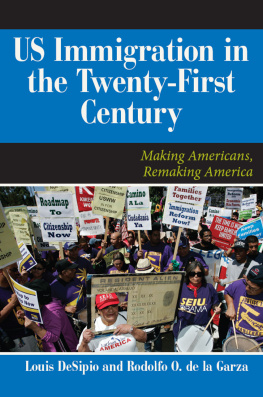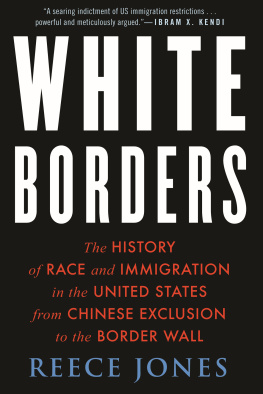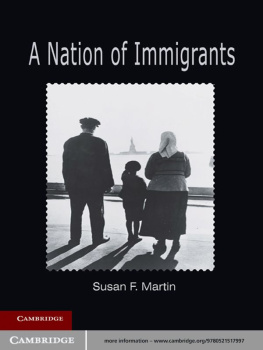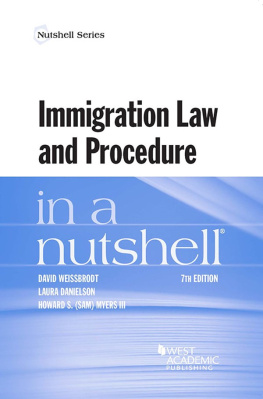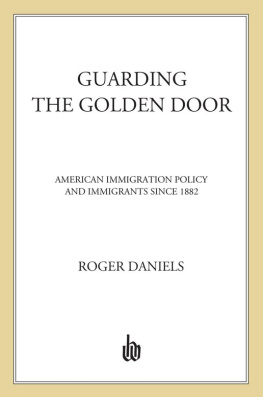Kevin Kenny - The Problem of Immigration in a Slaveholding Republic: Policing Mobility in the Nineteenth-Century United States
Here you can read online Kevin Kenny - The Problem of Immigration in a Slaveholding Republic: Policing Mobility in the Nineteenth-Century United States full text of the book (entire story) in english for free. Download pdf and epub, get meaning, cover and reviews about this ebook. City: New York, year: 2023, publisher: Oxford University Press, genre: History / Science. Description of the work, (preface) as well as reviews are available. Best literature library LitArk.com created for fans of good reading and offers a wide selection of genres:
Romance novel
Science fiction
Adventure
Detective
Science
History
Home and family
Prose
Art
Politics
Computer
Non-fiction
Religion
Business
Children
Humor
Choose a favorite category and find really read worthwhile books. Enjoy immersion in the world of imagination, feel the emotions of the characters or learn something new for yourself, make an fascinating discovery.
- Book:The Problem of Immigration in a Slaveholding Republic: Policing Mobility in the Nineteenth-Century United States
- Author:
- Publisher:Oxford University Press
- Genre:
- Year:2023
- City:New York
- Rating:3 / 5
- Favourites:Add to favourites
- Your mark:
The Problem of Immigration in a Slaveholding Republic: Policing Mobility in the Nineteenth-Century United States: summary, description and annotation
We offer to read an annotation, description, summary or preface (depends on what the author of the book "The Problem of Immigration in a Slaveholding Republic: Policing Mobility in the Nineteenth-Century United States" wrote himself). If you haven't found the necessary information about the book — write in the comments, we will try to find it.
Today the United States considers immigration a federal matter. Yet, despite Americas reputation as a nation of immigrants, the Constitution is silent on the admission, exclusion, and expulsion of foreigners. Before the Civil War, the federal government played virtually no role in regulating immigration, and states set their own terms for regulating the movement of immigrants, free blacks, and enslaved people. Insisting that it was their right and their obligation to protect the public health and safety, states passed their own laws prohibiting the arrival of foreign convicts, requiring shipmasters to post bonds or pay taxes for passengers who might become public charges, ordering the deportation of immigrant paupers, quarantining passengers who carried contagious diseases, excluding or expelling free blacks, and imprisoning black sailors. To the extent that these laws affected foreigners, they comprised the immigration policy of the United States.
Offering an original interpretation of nineteenth-century America, The Problem of Immigration in a Slaveholding Republic argues that the existence, abolition, and legacies of slavery were central to the emergence of a national immigration policy. In the century after the American Revolution, states controlled mobility within and across their borders and set their own rules for community membership. Throughout the antebellum era, defenders of slavery feared that, if Congress gained control over immigration, it could also regulate the movement of free black people and the interstate slave trade. The Civil War and the abolition of slavery removed the political and constitutional obstacles to a national immigration policy, which was first directed at Chinese immigrants. Admission remained the norm for Europeans, but Chinese laborers were excluded through techniques of registration, punishment, and deportation first used against free black people in the antebellum South. To justify these
measures, the Supreme Court ruled that immigration authority was inherent in national sovereignty and required no constitutional justification. The federal government continues to control admissions and exclusions today, while some states monitor and punish immigrants, and others offer sanctuary and refuse to act as agents of federal law enforcement.
By revealing the tangled origins of border control, incarceration, and deportation, distinguished historian Kevin Kenny sheds light on the history of race and belonging in America, as well as the ongoing tensions between state and federal authority over immigration.
Kevin Kenny: author's other books
Who wrote The Problem of Immigration in a Slaveholding Republic: Policing Mobility in the Nineteenth-Century United States? Find out the surname, the name of the author of the book and a list of all author's works by series.

